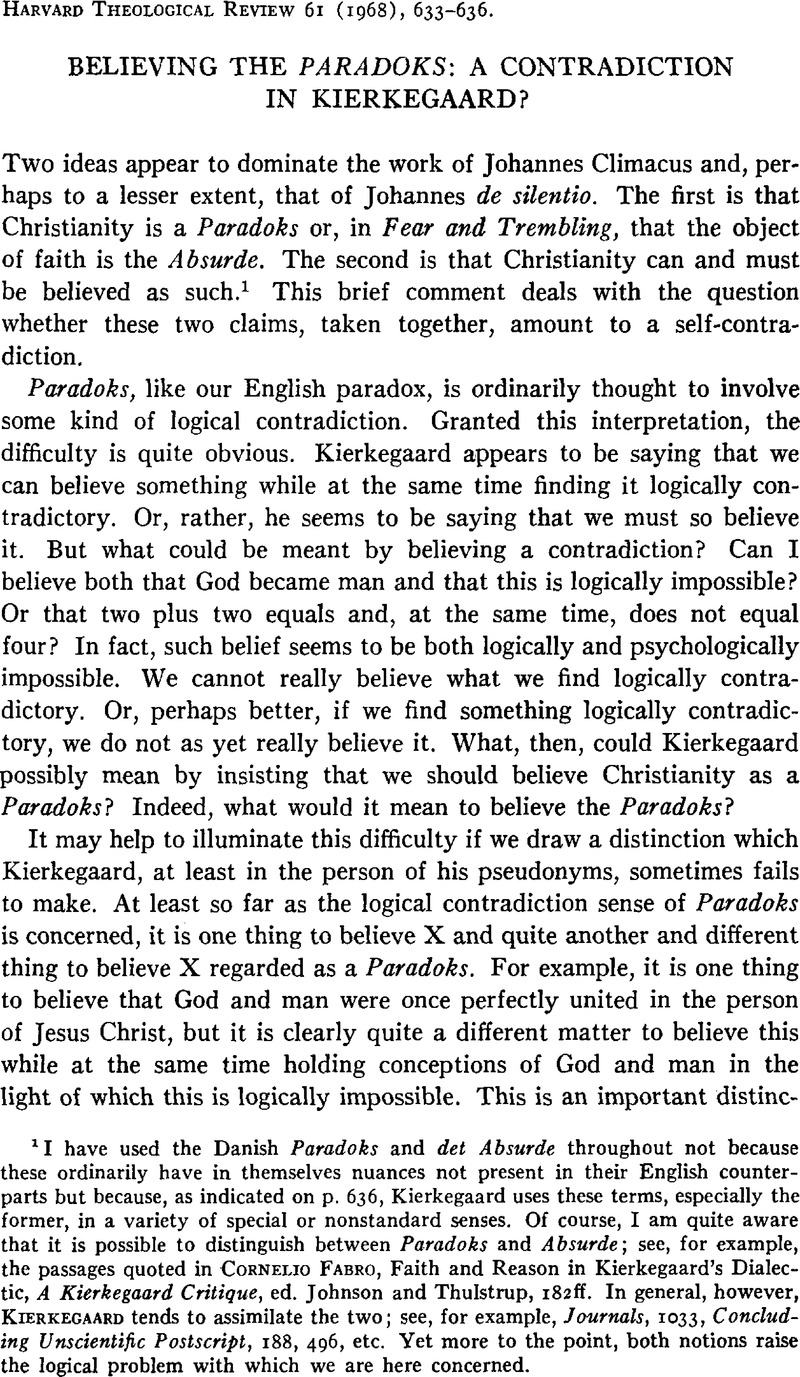No CrossRef data available.
Article contents
Believing the Paradoks: A Contradiction in Kierkegaard?
Published online by Cambridge University Press: 10 June 2011
Abstract

- Type
- Notes And Observations
- Information
- Copyright
- Copyright © President and Fellows of Harvard College 1968
References
1 I have used the Danish Paradoks and det Absurde throughout not because these ordinarily have in themselves nuances not present in their English counterparts but because, as indicated on p. 636, Kierkegaard uses these terms, especially the former, in a variety of special or nonstandard senses. Of course, I am quite aware that it is possible to distinguish between Paradoks and Absurde; see, for example, the passages quoted in Cornelio Fabro, Faith and Reason in Kierkegaard's Dialectic, A Kierkegaard Critique, ed. Johnson, and Thulstrup, , 182ftGoogle Scholar. In general, however, Kierkegaard tends to assimilate the two; see, for example, Journals, 1033, Concluding Unscientific Postscript, 188, 496, etc. Yet more to the point, both notions raise the logical problem with which we are here concerned.
2 Cf., e.g., Philosophical Fragments, esp. Chs. III & IV. Concluding Unscientific Postscript, 201, 493-519.
3 Concluding Unscientific Postscript, 189, 191.
4 Ibid., 197, 498f., 514f.
5 Cf., “However, if I regard the problem as a paradox, then I understand it, that is, I understand it in such a way as one can understand a paradox.” Fear and Trembling (Anchor Books), 84. Cf., “We do not ask that he understand the Paradox but only understand that this is the Paradox.” Philosophical Fragments (Second edition), 72. Cf., also, “Everyone who understands the Paradox differently may keep the honor of having explained it, which honor he won by not being content to understand it.” Ibid., 76.
6 Alastair Mckinnon, Kierkegaard's Irrationalism Revisited, International Philosophical Quarterly (forthcoming).
7 Journals, 1084.
8 Ibid., italics mine.
9 Mckinnon, Alastair, Kierkegaard; “Paradox” and Irrationalism, Journal of Existentialism 27 (Spring, 1967), 401–16Google Scholar.


